- People
- Mark Salter
- Orson Swindle
- William Cohen
- Gary Hart
- Mark McKinnon
- Jerry Kammer
- Robert Timberg
- John Weaver
- Peter Baker
- Related Links
- In Ordeal as Captive, Character Was Shaped
An October 2008 Washington Post article - The Wars of John McCain
2008 Atlantic cover story by Jeffrey Goldberg
Mark Salter Senior adviser to John McCain
 Read the full interview >
Read the full interview >
I think his character, by and large, was set before the experience. I think whatever self-doubt a young man has, as any young man might have, was probably settled after Vietnam, where he had to make a hard choice [to turn down early release] and made it. It was the correct one. ...
At one moment the Vietnamese were able to break him after several days of torture. And he was quite disconsolate about it, but it was the guy in the cell next to him who tapped him up on the wall and told him he had done the best he could; gather his strength, go back at them the next day. And I think that was the great moment of self-discovery for him: that there was no shame, really, in not being able to do everything in life on your own, especially something that had consequences for many more people than yourself. ...
He was still very much himself as he came out of there. He seemed to be able to move past the experience and readjust himself, not just to life in America but to modern life. He adapted quite well. He didn't seem burned with resentment about anti-war protests or anything else.
Orson Swindle McCain adviser; prisoner of war, 1966-'73
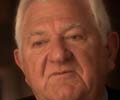 Read the full interview >
Read the full interview >
[You can tell] it just kills him to have said that confession. What's the point of the statement? Did he ever talk to you ... about what that meant to him, to sign it and do it?
We all have that same emotion, virtually all. ... And every one of us, having the years of experience there that we did, and having gone through it over and over and over again, and the experiences of others, we knew in our hearts that we had done the best we could. And that's all we ever ask of people, to do the best you can under really difficult circumstances. Resist to the point of mental impairment; don't go beyond that. And we will survive. We will all understand each other. ...
So you resisted and you resisted and you resisted, but even when you did a pretty darn good job under the circumstances, you always have pangs of guilt that they get it from you. But there's not a damn thing you do about it. We discovered in our experience that the mark of real men was not that you could resist to the death or they would never break you. ... The mark of real men is, once broken, to climb back in the arena as quickly as you possibly could. ...
He gives them a propaganda statement, and he says in the book that he just worried so much that he'd broken this pact you're talking about, that he was depressed, thought about taking his own life. Apparently a common response?
Common thought, a feeling of guilt. ... We wanted to take our lives because we couldn't take the pain, and if we couldn't take the pain, we were scared to death we'd do something to hurt our country. It's better that we get out of the picture than hurt our country. That's why some of us on occasions had that thought. It's a desperate thought, but it's not because we were nuts. ...
He also says that he was ... worried about his dad hearing about him having done it, that it really bothered him. And that later he and his father had the conversation and his father says to him, "You did the best you could."
I can understand that. John frequently says: "The essence of why we're here is to devote ourselves to a cause bigger than we are, something bigger than just me. Me's not worth a damn. It's something bigger than me; it's something bigger than you; it's something that we can accomplish, that moves the ball down the field in a positive sense."
I feared embarrassing my son, who didn't even know me. I feared embarrassing my family. I feared embarrassing my Marine [Corps], which was sort of like my family. I feared embarrassing or hurting my country. ... Again, it's about honor. It's about those obligations, spoken or sworn to, that you just don't do things like that. So yeah, I can understand his dad saying, "You did the best you could."
William Cohen Former senator, 1978-'97 (R-Maine)
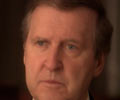
... Did you ever talk to him about the POW experiences and what happened?
For several years John would not talk to me -- to my knowledge, to anyone -- about it. He always deflected it. Didn't want to delve into it or discuss it. ... [I]t was probably late '80s, early '90s before he even discussed that after all of the years of friendship.
Why do you think he was so reluctant?
I think it's part of who he is. He's not someone who tries to make himself out to be bigger than who he is. And doesn't want to make that the central part of his life, as such. ... I think he's much more comfortable in talking about it, saying, "Yeah, I did endure this and it has made me a better legislator, a better leader, and this is why I feel as strong as I do about going forward in this fashion." ...
[Many POWs were tortured so horribly they did not come out of it psychologically healthy.] How do you think McCain did it? What was the resilience in that? ...
I just think it's in the DNA. I think he inherited that from his father, his grandfather, when you look back at their careers and how tough-minded they were. ...
... Were there demons left over from the Vietnam War? Was this a man who you could sense there was something in him that he was wrestling with? ...
I never really saw that. Does he wrestle with them? He probably does. If you look at him now, you say, "Look, what we went through in Vietnam, we didn't have to go lose that war, [we] gave up too soon," I think that's something he feels deeply about. Even now you can see it in his position on Iraq, saying, "Hang tough, follow me, and we'll get through this and we can emerge from it in a way that will be satisfactory to our interests, to our credibility and to our reliability."
I think that's still there. But it's not a hard edge. It's not something that he tries to shove at you. I think he just feels it passionately. ...
I think he also feels an obligation to the prisoners who perished, not only the ones who survived, but the ones who perished in prison, to go through that experience and what they went through and the sewing of the flag and the tapping on the walls and try to beat the interrogators and the tormentors, day in and day out. I think that he feels an obligation to them as well.
Gary Hart Former senator, 1975-'87 (D-Colo.)
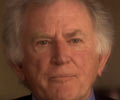
What always struck me about him was his equanimity about that experience. I think all of us were reluctant to say: "What was it really like? How bad was the torture?"
If he even edged close to it, he was very open. Told fabulous stories about his experiences. Laughed. I thought this man is incredibly well centered. You can't help but put yourself in that experience. ... I would have come out crazy as I could be. And I thought he was remarkably healthy. ...
Mark McKinnon Media adviser, McCain campaign, 2007-'08; media adviser, Bush re-election campaign
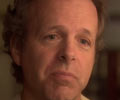
... [W]ar on terror issues that we're dealing with make his life story more appealing, compelling and relevant in this election. So I felt pretty strongly that we needed to tell that part of his story, and we had this unbelievable footage of him as a POW. And I wanted to include that in the advertising to tell the McCain story.
He was very much opposed to it. He felt it was exploitative. He also thought that it showed him in a kind of vulnerable situation. And so we really had to lean on him to let us even use it. ...
When it comes to his story and things like that, he's always, like, "I'm not sure we should do that. I'm not sure we should say that." He's always reluctant about that stuff. ... It's just kind of part of his honor code. ... He doesn't feel like he went through anything that any other survivor didn't go through. ...
Jerry Kammer Reporter, The Arizona Republic
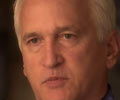
In [an] interview, Sen. McCain said that this entire experience with Keating and all the press attention and public scrutiny, was the worst experience of his life. And [my partner] Andy [Hill] and I looked at each other, and Andy said, "Worse than being a prisoner in Vietnam, Senator?" And McCain said, "Well, even the Vietnamese didn't question my integrity." This was, obviously, very striking and it made it into the story. ...
What did that say to you?
I think Sen. McCain is a man with a strong sense of integrity. He does not want to do anything to shame his office. I think he was most concerned about the appearance that he had abused his office to benefit Charlie Keating. ...
And the senator almost reflexively refers to the Vietnam experience as a way of seeking a bit of refuge, I think. We've seen this repeatedly in Arizona. When the senator first ran for office as a relative newcomer to Arizona, people were raising the carpetbagger question. And in one famous debate, as he was running for the House when he was asked about this, he said, "Listen, I think the place where I've lived the longest is probably Hanoi." It turned out not to be true, but boy, it shut off debate very quickly. It was one of the most effective lines ever delivered in an Arizona political debate. This was a guy who was saying, "Look, I was a prisoner of war in the service of my country. Don't question where I've lived."
But we also noticed when the senator is asked about health care, and it's pointed out that he has grown up in a Navy family and has a government career, his health care has always been taken care of by the federal government, he'll say, "Well, there was a time when my health care was in the hands of another government." He sort of reflexively refers to this central experience in his life to deal with a lot of issues. ...
Robert Timberg Author, John McCain: An American Odyssey and The Nightingale's Song

There was one instance ... I've always thought of this as revealing. There was a very good book written about the POW experience early on, back in the '70s I think, and it was called P.O.W. I think it's out of print. But at any rate, there was a section in there about Sen. McCain and it told this really brutal story about something that had happened to him, and how he had reacted, how he had been beaten, how he had been tortured, and essentially how he ultimately came through it.
I wanted him to tell me that story. And I went in, I said, "Hey, can you tell me this story? I was just reading about it in this book." And he said, "I don't like to talk about that." I said, "Well, I need to know about it. I mean, it's in this book, but I don't want to lift it. ... I want you to at least confirm it for me."
And he says, "Oh god." I said, "OK. OK. Alright. Alright. Do me a favor. Read this section and just tell me if it's true." And he says, "OK. OK." And you know how he can be sort of fidgety and everything? He takes it and he's walking around his office, and his head is bobbing ... going, "Yeah, yeah, yeah." He's just going around and he's walking and reading. Finally slaps it together, throws it back at me, says, "Yeah, it's all true." That was McCain at his most braggadocio. ...
What effect do you see his experiences as having? ...
I think there are a number of things. ... For one thing, I think the idea of what can happen if you leave a war that you have been deeply involved in, in which you have had allies, and you leave them, as we left the South Vietnamese, you can see what happens. And I think when he looks at Iraq, he sees the same kind of thing happening, that ... there's going to be a horror story, a bloodbath. Whether that's true or not, I don't know. But I think that is one of the things that accounts for his feelings about Iraq. ...
He knows war. And he knows that you don't get involved lightly. And if you're not going to go in and win, you don't go in. I think with regard to Iraq, he had completely believed that we would win, and we would win relatively quickly. But [the way] the war was prosecuted I think went very much against what he felt was the way to do it. And thus a war that he believed in was not fought the way he thinks it should have been fought. ...
John Weaver McCain chief political adviser, 1997-'07
 Read the full interview >
Read the full interview >
To his credit, when he got out of prison, as you know, he immediately went to the War College as soon as he could to study how we got into Vietnam, what happened, and why we ultimately lost the war. He was very curious about that. I think that's one lesson we should take from that, that he will make a very studious decision on war and peace issues.
One of the things in a Washington Post article ... was Vietnam defined him as seeing things, sometimes, in very black and white. And war is one of them -- his attitude about Vietnam, his attitude about Iraq, to some extent, is very clear-cut. Define the pluses and minuses.
The minus is you don't want someone who's going to make an emotional decision. The plus is once he's made the judgment that that's the right thing to do, then he's going to see it through.
Now we've seen with the current president that stubbornness is not necessarily a good thing. ... But I think the American people do want someone who, once they've made up their mind that they're going to lead us in a certain direction, will do so and not waiver. ...
Peter Baker The New York Times

... How much does Vietnam color everything John McCain does?
There's no way that Vietnam could not color everything that John McCain does and sees. You spend five-and-a-half years in a prison camp in North Vietnam, you're going to see everything through that prism. And part of that has shaped his view of this war in Iraq. He does not want to see happen what happened then. In his view that was a failure of leadership, and that same kind of failure in his mind couldn't be replicated today. ...
[W]hen John McCain was a Navy pilot flying missions into North Vietnam they would get missions to fly and bomb targets they had already bombed repeatedly and then not [have been] allowed to bomb a power plant or another military target that would be more valuable because the politicians said that's off limits. That's something that stuck with John McCain. That was wrong in his view. It was a waste of men's lives to risk themselves for targets that didn't need to be bombed, and a waste of men's lives to not hit the targets that should have been bombed in his view.
So when he looks at Iraq he does not think that Congress or the anti-war public or what have you should hold back the troops from doing what they need to do to defeat the enemy. [They] should not be handcuffed through what he feels are artificial restrictions and artificial limitations on their ability to conduct war. ...
Is John McCain still fighting the Vietnam War in his own head?
I think John McCain doesn't want to fight the Vietnam War again. I think that he sees that as such a tragic mistake of execution. In his view, the goal of American power today is to avoid all of the mistakes of Vietnam. He would take the lessons in a different way than say Barack Obama or other people of his own generation would take it. An essential goal of John McCain's political career is to avoid another Vietnam rather than re-fight it.